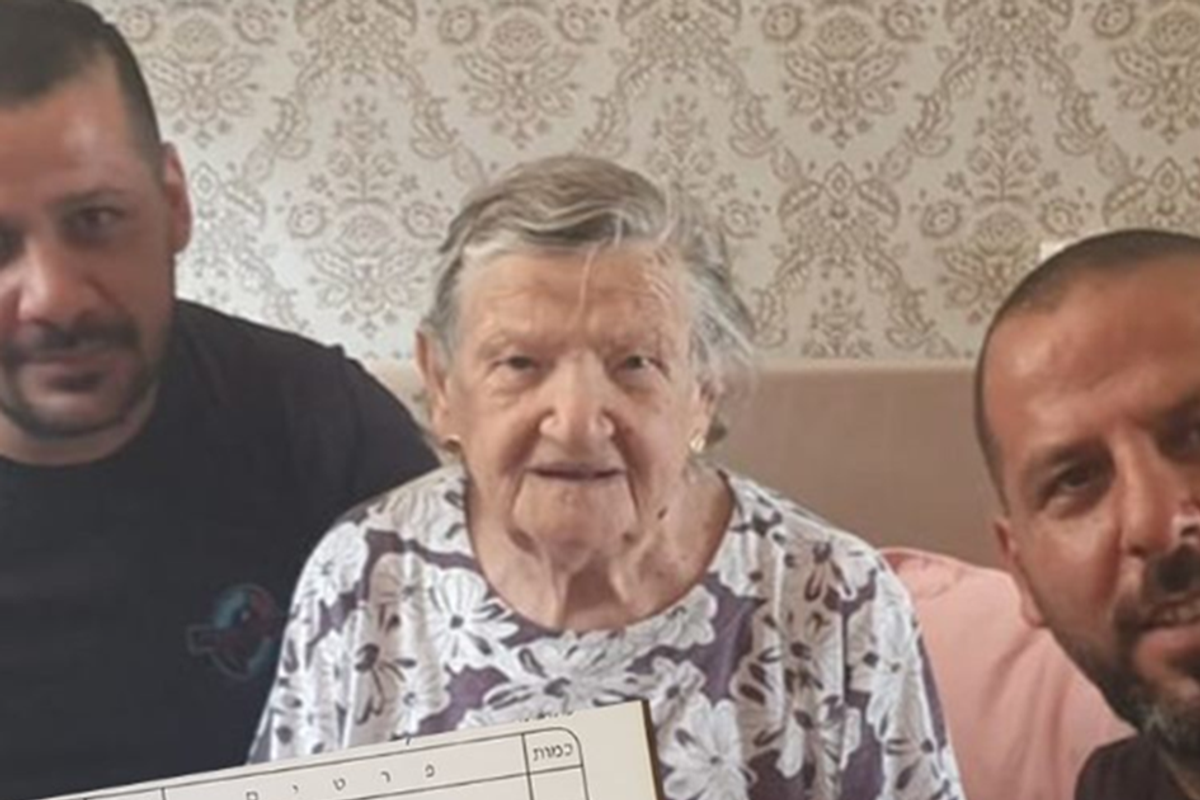After these plumbers learned their client was a Holocaust survivor, they handed her a ridiculous bill
The service should have cost about $285 before the brothers made a small adjustment.
It's estimated that only about 220,000 Holocaust survivors are still living. It's a number that's dwindling fast, rapidly accelerating every year. Sadly, in the coming years that number will eventually make its way to zero. When that day comes, it will be quite a loss for humanity. The stories and voices of those who lived through one of the worst atrocities imaginable are so important to our understanding of history. In fact, they've never been more important.
Nazi concentration caps were liberated 74 years ago, so a twenty year old who made it through the atrocity is now 94. Elihu Kover of Nazi Victim Services for Self-help Community Service spoke of the conditions many of these elderly survivors face as they advance in age at a Senate hearing in 2013.
"Holocaust survivors are growing older and frailer. … She may be coping with the loss of her spouse and have no family to speak of. In addition to the myriad problems associated with so-called 'normal aging,' many survivors have numerous physical and psychological problems directly attributable to their experiences during the Holocaust. … And many of these problems only surface in old age, having been hidden during their working years when the survivors struggled and made a new life for themselves as productive citizens of this country."

This sympathetic view of the tragedy isn't as popular in the Arab world where Holocaust denial is rampant and many cynically accuse the Jewish people of exploiting Western sympathy surrounding the tragedy to establish the State of Israel.
However, in 2019 two Arab men in Haifa, Israel made a beautiful show of respect to a Holocaust survivor who found their gesture "uplifting." And with the ongoing conflict in the Middle East, it's a powerful reminder that good people are everywhere.
Arab citizens make up about 20% of the population of Israel. The recent escalation of the Israel-Palestine conflict has put added strain on the relationship between Jewish and Arab citizens. Some politicians have painted Arabs as enemies of Israel, or as terrorists or security threats. In turn, it's easy to see why some Arab citizens would be distrustful and guarded.
But not these men, who chose to see the humanity in their customer.
Simon and Salim Matari, who are brothers, were recently called to the home of Rosa Meir, 95, to fix a leak.
(Also, how cool is it to see another pair of brother plumbers getting some headlines?!)

"When we got there, we saw there was a large blast of water and we started fixing it," Simon told the Times of Israel. "At some stage, while working, my brother Salim started to talk to Rosa about her life. She told us she's 95, a Holocaust survivor, and that she has a daughter."
"Her life story touched my heart," Simon continued. "At that moment, I decided I won't take a cent from her."
After the brothers finished their work, they gave Meir a bill that read: "Holocaust survivor, may you have health until 120, from Matari Simon and Matari Salim," adding that the cost of the service was "0 shekels." The service would have normally cost about $285 US.
"May you live until 120" is a Jewish blessing that carries the implication that the receiver live a happy and healthy life until the age of 120, which was when Moses is said to have died, his life "deemed perfect and complete."
When asked why he refused the payment, Simon said, "Money is important, but it’s not the most important. It’s important to be a human being.”
The gesture brought Meir to tears. "The brothers really surprised me," she said. "It was so moving and uplifting, and I thanked them a lot."
The brothers also told the woman that if she needed anything else they would be by to fix it for free.
If nothing else, Rosa Meir will be able to live out the rest of her days free of worry from leaks, drips, and broken faucets in her home. A small consolation, but the gesture touched the hearts of people far and wide. It's not the first time a big-hearted plumber has decided to waive his bill. A British plumber went viral several years back after fixing a 91-year-old's boiler for free. It just goes to show the power of a simple gesture for people who deserve our respect, admiration, and all the help we can give.
This article originally appeared six years ago. It has been updated.
- 91-yr-old Holocaust survivor Ben Lesser is sharing his story. It's one we all need to hear. ›
- Dyslexic plumber gets a life-changing boost after his friend built an app that texts for him ›
- After going viral for helping a 91-year-old, this humble plumber now exclusively serves the elderly and disabled ›

